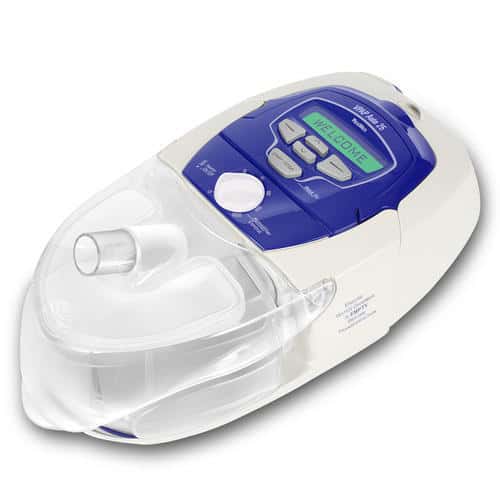VPAP vs CPAP: How to Choose the Best Sleep Therapy Machine
Photo by Rodrigo Pereira
Originally Posted On: https://wellawaresystems.com/vpap-vs-cpap/
Things can become quite complicated when you’re diagnosed with sleep apnea.
Different doctors prescribe and recommend various types of therapies and machines. The process of choosing the right treatment then becomes not only overwhelming but also intimidating.
But before you dive into the world of sleep apnea machines, you need to get familiar with their basic definitions first. Two of the most common machines you’ll often encounter in your search are VPAP and CPAP machines.
Read the rest of this article to know the difference between VPAP vs CPAP machines and help you decide which one’s right for you.
What is a VPAP Machine?

Also known as bi-level CPAP machines, VPAP machine stands for variable positive airway pressure machine. The term “variable” means that it varies between two different levels of air pressure–IPAP and EPAP.
IPAP stands for inspiratory positive airway pressure, which means that the machine delivers higher pressure during inhalation. EPAP means expiratory positive airway pressure, and this denotes the lower pressure that the machine delivers during exhalation.
The VPAP machine tracks your breathing pattern to know what kind of pressure to release. Its double-level approach makes sleep apnea treatment more efficient and trouble-free. Exhaling also becomes easier as you don’t have to forcefully breathe out, like what you usually have to do in CPAP machines.
Plus, the VPAP machine offers a greater variety of customization and advanced capabilities than standard CPAP technology.
Check out the pros and cons of a VPAP machine:
PROS
- Delivers two types of air pressure
- Quiet sleep therapy experience
- Different pressure features
- Various modes of operation
CONS
- Larger and heavier than CPAP machines
- Adjustable pressure produces noise that can wake you up
- Variable pressure adjustments can be quite difficult to understand
What is a CPAP Machine?

Dubbed by the National Sleep Foundation as the leading therapy for sleep apnea, the CPAP machine stands for continuous positive airway pressure.
It’s a breathing device that delivers air to a mask. You wear the mask over your nose and/or mouth to promote consistent breathing. The machine gently blows pressurized air through your airway at a constant pressure, keeping your throat from collapsing.Each CPAP machine is composed of three major parts:
- The CPAP motor draws room temperature air and gently pressurizes it to deliver the ideal amount of air pressure you need. Some machines have a small water tank that heats up and provides moisture to the air you breathe.
- The CPAP hose transports the pressurized air from the motor to your mask.
- The CPAP mask typically comes in three variations: nasal pillows, nasal masks, and full face masks.
The CPAP machine is also designed to treat several breathing conditions, such as respiratory distress syndrome among infants.
Most CPAP machines that you see today are small. In fact, you can find portable models if you search online. Although small in size, it’s still efficient enough to offer steady air pressure.
PROS
- Generally quiet
- Great data options
- Easy to set up
- User-friendly
- Heated tubing options
CONS
- Not enough exhalation relief
- Not the best quality air flow
- Might have incorrect data reports
What’s the Difference Between VPAP vs. CPAP Machines?
Although both of these machines offer great benefits, they do have some differences.
One of the differences is that CPAP offers a steadier and more consistent airflow. Meanwhile, VPAP machines change pressure during inhalation and exhalation.
The VPAP machines also have excellent ventilation options while the CPAP does not.
If you want a machine that offers more modes of operations, then choose VPAP machines. But if you want an easy setup and more straightforward treatment, then go for CPAP machines.
When it comes to treating respiratory illnesses, VPAP machines are generally prescribed to patients with sleep apnea and congestive heart failure. Meanwhile, CPAP machines treat and manage obstructive sleep apnea only.
That’s why many people generally choose VPAP machines over CPAP machines, since VPAP can treat more illnesses and disorders than CPAP. After all, it’s typical for patients with sleep apnea to have other related disorders as well.
If your diagnosis indicates sleep apnea only, then it’s recommended that you choose CPAP machines since they are simpler and more affordable. But if you have breathing problems that need variable pressure levels, then the VPAP should be effective.
Read more: CPAP vs BiPAP Machine
Final Thoughts
Millions of people with sleep apena have used different machines to treat their sleeping problem. But bear in mind that VPAP and CPAP machines are just two of the options for treating and managing sleep disorders.
For you to get the best treatment, make sure that you choose the most suitable machine for your breathing and sleeping needs. With hundreds of different VPAP and CPAP machines out there, choose a high-quality device manufactured by a reputable company.
Ask your doctor for prescriptions and recommendations. If you have a friend or family member who has already used these machines before, then don’t hesitate to seek advice from them as well. As long as you do your homework, you’ll eventually find the ideal sleep therapy machine that fits your needs.
